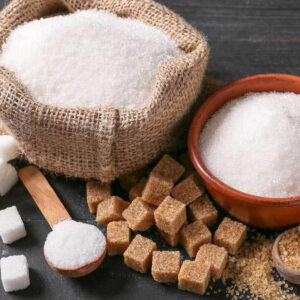Examining beet sugar vs cane sugar reveals distinctions in production costs and availability.
Examining beet sugar vs cane sugar reveals distinctions in production costs and availability.
Blog Article
Discover the Uses and Advantages of Beet Sugar Vs Cane Sugar in Your Daily Diet Plan
Exploring the distinctive top qualities of beet and cane sugar exposes more than simply their sweetening capabilities; it highlights their unique effect on health and wellness and cookeries. Beet sugar, recognized for its subtle taste, is often favored in delicate treats, whereas cane sugar, with its hint of molasses, includes richness to robust meals. Each kind holds its own nutritional profile and glycemic effects, inviting a deeper understanding of their functions in a balanced diet plan and sustainable usage techniques.
Origin and Production Procedures of Beet and Cane Sugar

The distinct climates and soil types required for expanding sugar beetroots and sugarcane add to differences in their farming techniques and geographic circulation, affecting the business economics and sustainability of their manufacturing. beet sugar vs cane sugar.
Nutritional Comparison In Between Beet Sugar and Cane Sugar
Despite stemming from different plants, beet sugar and cane sugar are nutritionally really comparable, both mainly including sucrose. Each supplies concerning 4 calories per gram, equating to roughly 16 calories per tsp. Structurally, both sugars are composed of roughly 99.95% sucrose, with minimal quantities of various other compounds like wetness and trace element, which do not substantially change their nutritional profiles.

Inevitably, when selecting in between beet sugar and cane sugar based on dietary content alone, both deal similar advantages and downsides as they are essentially types of the exact same molecule-- sucrose, offering fast power without other nutrients.
Effect On Wellness: Glycemic Index and Caloric Content
Checking out even more right into the results of beet sugar and cane sugar on health, it is crucial to consider their glycemic index and calorie content. The glycemic index (GI) of both beet and cane sugar is around 65, categorizing them as high-GI foods, which can cause quick spikes in blood glucose degrees.
Each kind of sugar contains about 4 calories per gram, making their caloric content matching. For those keeping an eye on caloric intake, specifically when handling weight or metabolic wellness problems, recognizing this equivalence is essential (beet sugar vs cane sugar). Too much usage of any high-calorie, high-GI food can add to health and wellness issues such as weight problems, heart best site condition, and insulin resistance.
Environmental and Economic Factors To Consider of Sugar Production
Beyond health and wellness impacts, the manufacturing of beet and cane sugar additionally raises significant environmental and economic problems. Sugar beet farming tends to call for cooler climates and has a lower geographical footprint contrasted to sugar cane, which flourishes in exotic areas.
Furthermore, using chemicals and plant foods in both beet and cane sugar growing can bring about soil degradation and pollution, additional influencing biodiversity and regional water bodies (beet sugar vs cane sugar). The choice between cultivating sugar beet or cane usually rests on regional ecological conditions and economic factors, making the sustainability my response of sugar production a complex problem
Culinary Applications and Taste Distinctions
While the ecological and financial aspects of sugar production are without a doubt substantial, the selection in between beet and cane sugar likewise affects cooking applications and taste accounts. Beet sugar, stemmed from the sugar beet plant, is recognized for its incredibly neutral preference. This makes it a flexible component in baking, where it does not change the taste of various other components. It dissolves promptly and is perfect for use in cakes, cookies, and breads.
Cane sugar, drawn out from sugarcane, commonly preserves molasses this traces, which impart a distinctive splendor and depth. This mild molasses flavor enhances the intricacy of baked products, sauces, and marinates. It is especially favored in things where a caramel undertone is preferred, such as in brownies or gingerbread. The minor variation in moisture material in between beet and cane sugar can affect the texture and consistency of dishes, making cane sugar a favored option for certain recipes that profit from its unique homes.

Final Thought
To conclude, both beet and cane sugar have distinctive beginnings and manufacturing procedures, supplying comparable nutritional profiles with slight differences in salt web content and taste. While their effect on wellness, especially relating to glycemic index and calories, is equivalent, the selection in between them frequently comes down to environmental, financial aspects, and specific culinary needs. Understanding these aspects can assist customers in making notified decisions that straighten with their health goals and taste choices.
Report this page